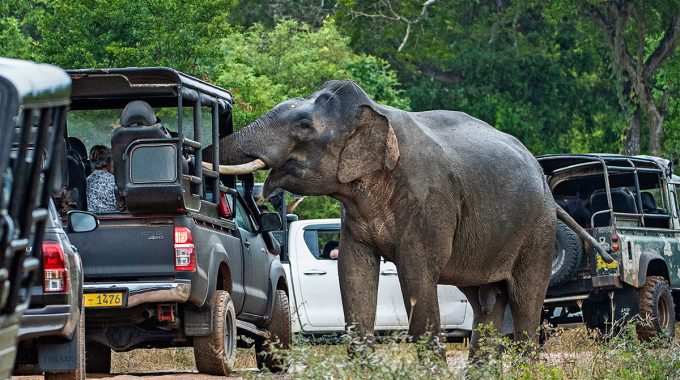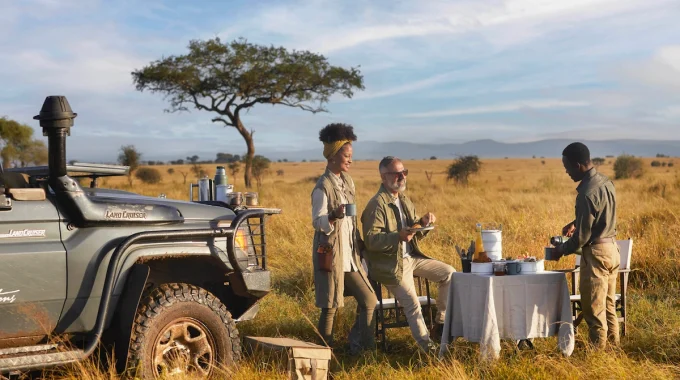Your Big African Safari Planner: What to Expect from the Top Safari Countries in 2025…
Top Tips for the Best Malaria Free Safari in South Africa

Why Choose a Malaria-Free Safari in South Africa?
When planning your dream South African safari, the last thing you want is to worry about mosquito bites and the risk of contracting malaria. Fortunately, you can experience the thrilling Big Five safaris and world-class game viewing without any health concerns by opting for a malaria-free safari in South Africa.
South Africa stands out as the only country in Africa that officially offers completely malaria-free safari experiences. While malaria is a concern in some parts of the continent, several South African provinces are entirely safe year-round. Whether you’re traveling solo, with a partner, as a family with young children, or with elderly relatives, choosing a malaria-free safari destination ensures a stress-free and memorable African adventure.
In this guide, we’ll dive deep into:
-
What a malaria-free safari means,
-
The best malaria-free game reserves,
-
Regions where you can experience Big 5 safaris without the bite,
-
And crucial travel tips for a safe and healthy journey.
Your African safari dreams are about to become a mosquito-free reality!
Understanding Malaria and Why It Matters
Before we explore where you can enjoy a malaria-free safari, let’s briefly understand the disease itself.
Malaria is caused by a parasite called Plasmodium, transmitted to humans through the bites of infected female mosquitoes. The conditions these mosquitoes thrive in include:
-
Stagnant water (marshes, riverbeds, shallow ponds),
-
Humid, warm, low-lying tropical regions.
Infected mosquitoes pick up the parasite from biting an infected human. After developing inside the mosquito, the parasites travel to the mosquito’s salivary glands, ready to infect the next person it bites. Once transmitted to humans, the parasites invade the liver and red blood cells, causing symptoms like:
-
High fever,
-
Chills,
-
Vomiting,
-
Fatigue.
Early diagnosis and treatment are critical. While malaria is curable, it’s still something you’ll want to avoid during your African safari.
For a more detailed breakdown, check out our full blog on Malaria Made Simple [#].
Are There Really Malaria-Free Safaris in Africa?
Yes, absolutely!
While most parts of Africa carry some level of malaria risk, South Africa boasts several safari regions where malaria transmission is nonexistent.
Official malaria-free safari destinations are located in:
-
Eastern Cape,
-
North West Province (including Pilanesberg and Madikwe),
-
Waterberg District (Limpopo Province),
-
Northern Cape,
-
Cape Town and Surrounds (Western Cape Province).
Choosing a safari in these areas means:
-
No need for anti-malarial medication,
-
Safe travel for children, elderly travelers, and pregnant women,
-
Peace of mind throughout your adventure.
Some neighboring regions in Namibia and Botswana also have malaria-free zones, but South Africa remains the only African country offering completely malaria-free Big Five safari experiences.
Explore the best malaria-free safari options in South Africa [#].
What Does ‘Malaria-Free’ Really Mean?
The World Health Organization (WHO) defines a malaria-free area as one where there is:
“No ongoing, local mosquito-borne malaria transmission, and any malaria cases are imported and not endemic.”
In simpler terms, the risk of getting malaria is negligible. You can enjoy the best wildlife safaris without worrying about unseen health risks.
However, it’s always wise to take basic precautions like:
-
Using insect repellent,
-
Sleeping under mosquito nets (where available),
-
Wearing long sleeves during the evening.
Get more malaria protection tips here [#].
Top Malaria-Free Safari Destinations in South Africa
Now, let’s dig into the best places to go for a malaria-free safari packed with thrilling wildlife encounters.
Malaria-Free Eastern Cape Safaris
The Eastern Cape has fast become one of South Africa’s most popular safari regions. It offers:
-
Incredible Big Five game viewing,
-
Diverse landscapes from savannah to coastal forests,
-
A wide range of accommodation options — from luxury lodges to family-friendly camps,
-
Easy access from Gqeberha (Port Elizabeth).
Top Safari Parks in the Eastern Cape
1. Addo Elephant National Park
-
Home to over 600 elephants and the rare Big 7 (Big 5 + Great White Shark + Southern Right Whale).
-
Third-largest national park in South Africa.
-
Easily accessible with day trips or overnight stays.
Adventure in the Wild Safaris offers:
-
Full-Day Addo Elephant Park Safari [#],
-
3-Day Addo Safari Tours [#],
-
9-Day South Africa Adventure Tours including Addo [#].
2. Kariega Private Game Reserve
-
Family-owned, 11,500 hectares of malaria-free wilderness.
-
Home to endangered species like the Cape Leopard.
-
Luxury safari lodges with Big 5 safaris and river cruises.
-
Known for the touching story of Thandi the Rhino, a survivor of poaching.
Combine Addo and Kariega on the 5-Day Addo and Kariega Safari [#].
3. Amakhala Game Reserve
-
Less than an hour’s drive from Gqeberha.
-
Five of South Africa’s six biomes — home to cheetahs, giraffes, and rare Cape Clawless Otters.
-
Offers day safaris and luxurious overnight stays.
Explore options at Amakhala Game Reserve [#].
4. Shamwari Private Game Reserve
-
One of the most prestigious private reserves in South Africa.
-
Renowned for luxury safaris, conservation programs, and immersive game drives.
-
Family-friendly and malaria-free — perfect for travelers with children or elderly relatives.
Plan a luxury safari to Shamwari Game Reserve [#].
Malaria-Free Safaris in the North West Province of South Africa
For travelers seeking a malaria-free safari that’s easily accessible from Johannesburg, the North West Province is a goldmine. Bordering Botswana, this region is packed with world-class game reserves offering exceptional wildlife encounters without the health risks.
It’s no wonder North West safaris are growing in popularity among families, honeymooners, and first-time safari goers looking for authentic African adventures close to major airports.
Let’s explore two of the top malaria-free destinations in this province:
Pilanesberg National Park: Safari in an Ancient Volcano
Pilanesberg National Park is South Africa’s fourth-largest game reserve, covering 550 square kilometers. Nestled within the crater of an extinct volcano, it offers one of the most fascinating geological landscapes in the country.
Why Choose Pilanesberg for Your Safari?
-
Big Five Game Viewing: Lions, leopards, elephants, rhinos, and buffalos all roam freely here.
-
Diverse Ecosystems: Thanks to its unique location between the Kalahari and the Lowveld, Pilanesberg hosts a rich variety of wildlife.
-
Accessibility: Only a 2-3 hour drive from Johannesburg and Pretoria, making it perfect for short trips.
-
Family-Friendly: Malaria-free status makes it a great choice for families with young kids.
-
Affordability: A wide range of accommodations from luxury lodges to budget chalets.
With over 7000 animals and 360 bird species, Pilanesberg promises memorable safaris without the crowds of Kruger National Park.
Discover the best Pilanesberg safari tours [#].
Madikwe Game Reserve: South Africa’s Hidden Gem
Tucked against the Botswana border, the Madikwe Game Reserve is South Africa’s fifth-largest and one of its best-kept secrets. Spanning 750 square kilometers, Madikwe offers a completely malaria-free wilderness experience.
What Makes Madikwe Special?
-
Big Five and Beyond: Home to over 66 mammal species and 350+ bird species.
-
Rare Wildlife: Madikwe is renowned for its thriving population of endangered African wild dogs.
-
Exclusive Lodges: Stay in luxurious lodges or community-run accommodations that support local communities.
-
Eco-Tourism Model: One of the first reserves in South Africa built around a sustainable conservation and tourism model.
Madikwe is especially magical for observing wild dogs, often seen hunting in coordinated packs — an extraordinary sight even for seasoned safari-goers.
Plan your dream Madikwe Game Reserve safari [#].
The Untamed Beauty of Malaria-Free Northern Cape Safaris
If you’re seeking remote, rugged beauty with a malaria-free guarantee, the Northern Cape offers breathtaking options. Although distances are larger, the reward is a true sense of isolation and raw African wilderness.
Here are some malaria-free safari jewels of the Northern Cape:
Tswalu Kalahari Reserve: South Africa’s Largest Private Game Reserve
Imagine exploring a private wilderness the size of a small country — that’s what Tswalu Kalahari Reserve offers. Covering over 100,000 hectares, this malaria-free wonderland delivers exclusivity and extraordinary wildlife encounters.
Top Reasons to Visit Tswalu:
-
Rare Species Sightings: See elusive creatures like aardvarks, pangolins, and brown hyenas.
-
Unique Landscapes: Explore vast open plains, dunes, and the dramatic Korannaberg Mountains.
-
Family Friendly: Welcomes children of all ages with tailor-made safari programs.
-
Luxury Lodging: Private safari vehicles and custom itineraries create an ultra-luxury experience.
Wildlife sightings feel deeply personal at Tswalu — no vehicle traffic jams, no rushed game drives — just you, your guide, and Africa.
Experience Tswalu’s malaria-free safaris [#].
Other Northern Cape Safari Highlights
While Tswalu is the crown jewel, the Northern Cape has more to offer:
-
Mokala National Park: Near Kimberley, great for black rhinos and roan antelope.
-
Augrabies Falls National Park: Famous for its spectacular waterfall and rugged scenery.
-
Kgalagadi Transfrontier Park (southern parts): A semi-desert region perfect for spotting predators.
These parks showcase the rich diversity of South Africa’s malaria-free safari options beyond the mainstream destinations.
Explore all Northern Cape safari options [#].
Malaria-Free Safaris Near Cape Town: The Best of Both Worlds
Cape Town — affectionately known as the Mother City — is one of the most beautiful cities in the world. Visitors often ask:
Can I combine a Cape Town vacation with a malaria-free safari nearby?
The answer is: Yes, you can!
While Kruger Park requires a flight from Cape Town and carries malaria risk, there are several malaria-free safari lodges within a few hours’ drive of the city.
Top Malaria-Free Safari Lodges Near Cape Town
1. Aquila Private Game Reserve
-
Distance: ~2 hours from Cape Town.
-
Highlights: Affordable Big Five safaris, family-friendly, great day-trip options.
2. Inverdoorn Game Reserve
-
Distance: ~2.5 hours.
-
Highlights: Larger than Aquila, more exclusive, home to a cheetah conservation program.
3. Mont Eco Private Game Reserve
-
Distance: ~3 hours.
-
Highlights: Eco-friendly luxury, ideal for intimate safaris focused on conservation.
4. Sanbona Wildlife Reserve
-
Distance: ~3.5 hours.
-
Highlights: One of the largest private reserves in South Africa, incredibly exclusive and home to white lions.
Whether you’re short on time or blending city exploration with wildlife adventure, these reserves provide the perfect malaria-free safari options near Cape Town.
Find the best Big Five safaris near Cape Town [#].
Answers to Malaria FAQs for South Africa Safaris
Even when planning a malaria-free safari in South Africa, many travelers have lingering questions about malaria risks and travel safety. Let’s address the most common FAQs to help you prepare with confidence.
Is Kruger National Park Malaria-Free?
No, Kruger National Park is not considered malaria-free.
Kruger is located in the Lowveld region of South Africa, where malaria is endemic — particularly during the rainy season (October to April).
Key points to remember:
-
Peak malaria risk coincides with the wet season.
-
Low malaria risk exists from May to September, during the dry season.
-
Daytime game drives carry almost no risk since malaria mosquitoes (Anopheles) are active mainly at night.
-
Precautions like anti-malarial medication, mosquito repellents, and appropriate clothing are advised.
Important Tip:
Even though the chance of contracting malaria at Kruger is low (around 1 in 24,000 visitors), it’s always wise to consult your doctor before traveling.
Learn more about visiting Kruger Park safely [#].
Can I Visit Non-Malaria-Free Game Reserves Safely?
Yes, you can — provided you take the right precautions.
Game reserves in South Africa with malaria risk include:
-
Parts of Limpopo Province,
-
The Lowveld region of Mpumalanga,
-
Coastal parts of KwaZulu-Natal.
These areas are rich in wildlife, but the presence of malaria-transmitting mosquitoes makes it important to:
-
Take prescribed malaria prophylaxis,
-
Wear long sleeves and insect repellent,
-
Sleep under treated mosquito nets.
Cities like Johannesburg, Durban, and Cape Town are 100% malaria-free and completely safe for travelers of all ages.
Get detailed advice on safely visiting malaria-risk areas [#].
What Are Essential Malaria Precautions for Safaris?
Whether you’re visiting a malaria-free or a malaria-risk area, practicing basic mosquito protection is a smart move. Here’s a simple checklist:
✅ Apply insect repellent (containing DEET) liberally on exposed skin.
✅ Close windows and doors at night if they are not screened.
✅ Spray your sleeping area with an aerosol insecticide.
✅ Use mosquito coils and electric mats.
✅ Sleep under a mosquito net where available.
✅ Wear long-sleeved shirts, trousers, and closed shoes at dusk and dawn.
Who Needs Extra Caution?
-
Young children under 5 years old,
-
Seniors over 65,
-
Pregnant women,
-
People with chronic illnesses or compromised immune systems.
For a detailed overview, check our full guide on Malaria Made Simple [#].
When to Seek Medical Help After a Safari
Even after returning home from your safari, it’s essential to stay vigilant.
Malaria symptoms can appear up to six months after exposure.
Seek medical attention immediately if you experience:
-
Fever,
-
Chills,
-
Sweating,
-
Nausea,
-
Fatigue,
-
Muscle aches.
Always inform your doctor about your recent travel to malaria-endemic regions to ensure quick diagnosis and treatment.
Malaria is curable when treated early — don’t delay!
Get tips on post-safari health monitoring [#].
Top Reasons to Choose a Malaria-Free Safari in South Africa
There are endless reasons why a malaria-free safari in South Africa could be your best travel decision ever.
Here’s why:
1. No Need for Malaria Medication
One of the biggest perks of a malaria-free safari is skipping anti-malarial tablets.
-
No side effects (some malaria pills can cause nausea or dizziness),
-
No strict medication schedules,
-
No extra medical expenses before traveling.
Simply pack your bags, board your flight, and start your African safari without the health concerns.
Explore all the best malaria-free safari destinations [#].
2. Family-Friendly Safaris
Malaria-free game reserves are ideal for families with children, offering:
-
Safe environments for young explorers,
-
Specialized kids’ safari programs,
-
Educational wildlife experiences without health worries.
Find more inspiration in our Family Safari Safety Tips [#].
3. Guaranteed Big Five Sightings
Don’t worry — going malaria-free doesn’t mean missing out on top wildlife action!
Top malaria-free reserves like:
-
Pilanesberg National Park,
-
Madikwe Game Reserve,
-
Shamwari Private Game Reserve,
-
Addo Elephant National Park,
…offer incredible Big Five safaris alongside luxury lodges and professional guides.
Plan your Big Five malaria-free safari [#].
4. Combine Safari with City, Coast, and Wine Country
The location of South Africa’s malaria-free reserves allows you to mix adventure with leisure:
-
Visit Cape Town and the Winelands,
-
Tour the Garden Route,
-
Relax along the Wild Coast,
-
Hike in the Drakensberg Mountains.
South Africa’s malaria-free safari regions are perfectly placed to combine with other bucket-list experiences!
Check out our South Africa travel packages [#].
Ready to Book Your Dream Malaria-Free Safari?
Adventure awaits — without the mozzies!
At Adventure in the Wild Safaris, our team of African travel experts can help you:
-
Select the best malaria-free safari lodges,
-
Plan child-friendly and senior-friendly itineraries,
-
Customize your journey to include beaches, mountains, and wildlife parks.
Contact us today [#] to start planning your malaria-free adventure of a lifetime.



